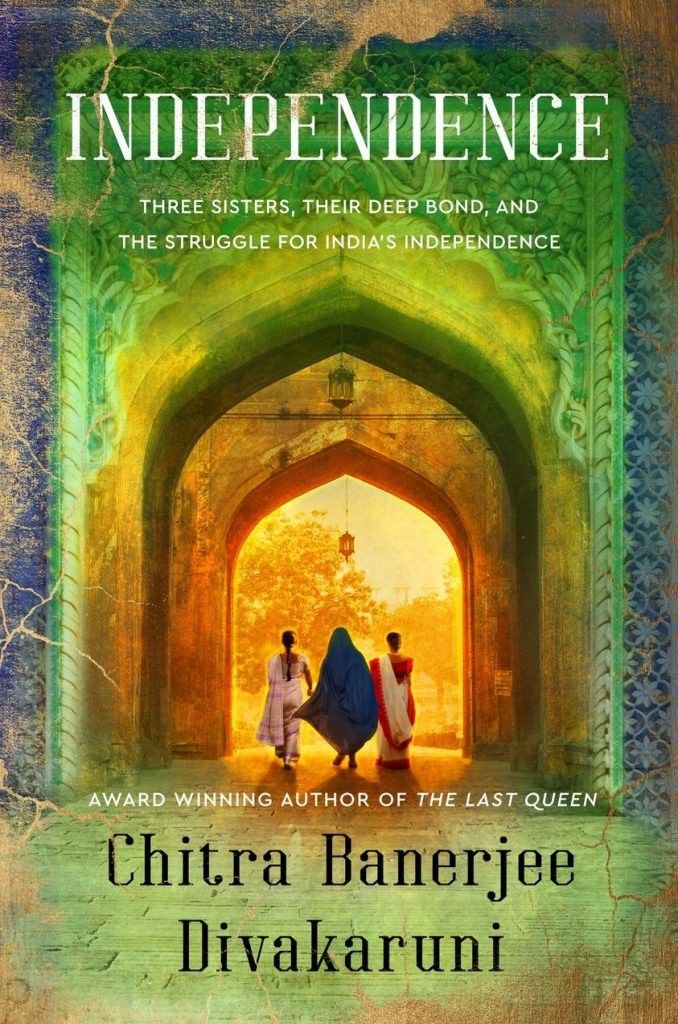Chitra Banerjee Divakaruni, a US-based author, highlights the lack of attention given to Partition literature in English, which largely focuses on the division of Punjab. She expresses a desire to honour the stories that were left out, particularly the shocking events of Direct Action Day and the Noakhali killings.
Following the completion of her novel “The Last Queen,” which narrates the story of Maharani Jindan Kaur, the last queen of the kingdom of Punjab who fought against the British in the 1840s but was ultimately unsuccessful, Divakaruni felt compelled to continue her exploration of the aftermath of Partition.
“It was a heroic but tragic story, and I was depressed after I finished it. I felt the need to continue the story, to write another book in which India finally becomes free of the colonial yoke and the British are forced to leave,” the author told PTI.

“Independence” is Divakaruni’s latest novel that delves into the lives of three sisters – Priya, Deepa, and Jamini – and their unwavering bond as they navigate the tumultuous events of Partition that they have no control over.
The book emerged from Divakaruni’s desire to shed light on the stories that were left out of Partition literature in English, particularly those of the Noakhali killings and the horrors of Direct Action Day, which have been overshadowed by the focus on the division of Punjab.
In an interview with PTI, Divakaruni acknowledged the absence of accounts of loss and heroism from Bengal in mainstream English Partition narratives. She explained that this gap was in the back of her mind as she researched and wrote “Independence,” as she too had felt the lack of representation of these stories while reading Partition literature in English.
During her childhood in Kolkata, Divakaruni had the privilege of knowing elders who had actively participated in the Indian freedom struggle. Her maternal grandfather, on whom the character of Nabakumar is partly based, had narrated stories to her, particularly those of the “shock and horror” during Direct Action Day and the Noakhali killings.
Divakaruni stated that she aimed to pay tribute to the stories that were neglected in the Partition narrative. She hoped to bring attention to the valiant women, such as Matangini Hazra, who displayed immense bravery and fought for independence until her last breath. Hazra, an uneducated woman, was 72 years old when she was shot dead while leading a march with the Indian flag.
In her career spanning over 20 books, including “Mistress of Spices”, “Sister of My Heart”, “Oleander Girl”, “Before We Visit the Goddess”, and “Palace of Illusions”, the author initially focused on migration as the central theme. However, she later found her voice in creating women characters based on mythology and history.
Her literary works include a remarkable reinterpretation of Draupadi and Sita, Rani Jind Kaur, and now, the three sisters in “Independence,” published by HarperCollins India.
Divakaruni reflects on whether she should have explored the historical novel genre earlier, stating that she needed to grow into it. She explains that her earlier books, which focused on the immigrant experience, gave voice to women like her.
Only after addressing the present issues and coming to terms with them, including incidents of racism and misogyny, was she able to delve into the rich mythology and history and write books like “Palace of Illusions” and “Independence.”
Divakaruni lived in India for the first twenty years of her life and has been traveling back and forth regularly ever since.
“So, I have some continued familiarity with the culture and many friends with whom I can discuss matters of common interest. I try to keep up with the political and social situation as well. Because of my activist work in the field of domestic violence, I am in touch with several women’s groups,” she said.
Divakaruni reads Indian fiction, talks to Indians from diverse backgrounds, and researches carefully to understand mythological characters.
She also works with Indian editors and cultural specialists to improve the accuracy of her writing. And despite being a private person, she feels grateful for the positive response from readers and reviewers.
“In fact, my daily life is rather uneventful – and I love keeping it that way. It gives me long stretches of writing time,” she said.
Divakaruni leads a quiet life in Houston, focusing on her meditation practice, teaching, writing, family, gym visits, and activist work. She is currently working on her first nonfiction biography and hopes it will be truthful, exciting, and inspiring.
With inputs from PTI
